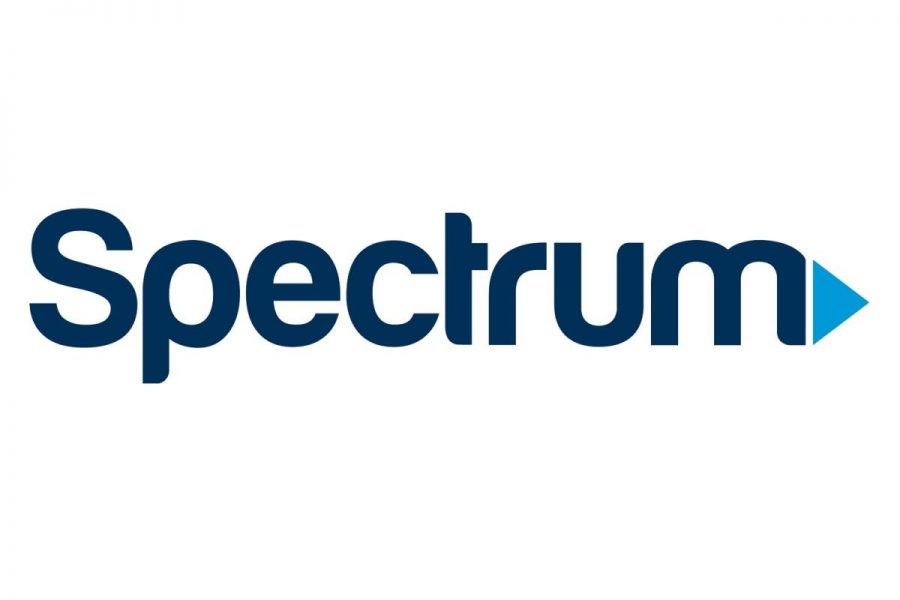Spectrum Outage Impacts Students Living Off Campus
Two million Spectrum customers, including residents of the Village of Hamilton, lost cable TV, internet and phone service due to a widespread outage, which hindered flu-ridden Colgate students from receiving prescribed medication at Kinney Drugs, the drugstore closest to campus. The outage, which Spectrum attributed to fiber optic damage from ice and heavy snow, impacted Hamilton on Saturday, February 8, one day after Colgate’s Weather Decision Group canceled classes and campus operations due to inclement weather.
Although the power outage began on Friday, Feb. 7, Spectrum did not make a public announcement until Saturday afternoon, at which point the company apologized and announced in a tweet that the damage impacted services within their northeast region, including Upstate New York, Maine and New Hampshire. The company later said that road closures caused by fallen trees and downed power lines obstructed repair crews, delaying the restoration process. Spectrum fixed all services by 5 p.m. on Feb. 8.
Senior Emma Stearns was diagnosed with the flu in the middle of the outage on Saturday around 1 p.m. and said that the power disruption prevented her from getting prescription medication, posing a threat to her health.
“The woman working at the drive-through window at Kinney Drugs said that the systems were down, so there would be no way my prescription was processed if it was just called in,” Stearns said. “I got my prescription the next day, and I developed a fever in the time between my doctor’s appointment at Urgent Care and when I could get medicine.”
Senior Director of Marketing and Advertising for Kinney Drugs Judith Cowden, detailed how the store in Hamilton handled the outage, which lasted from about 12:30 p.m. to 4:30 p.m.
“Six people had prescriptions waiting so we could dispense the medication no problem at all, two needed their medication right away so we were able to transfer them to a different pharmacy and they could get their medication that same afternoon, and we called four right away as soon as service was restored and filled the prescriptions that same day,” Cowden said. “When service was restored, we had about 30 prescriptions in the queue for about ten paid people, some were students and were for Tamiflu, [an antiviral medicine for treatment of the flu],” Cowden said.
Senior Sophie Boyd, also diagnosed with the flu, experienced inconveniences at Byrne Dairy and Oliveri’s Pizza, both of which only accepted payments in cash during the outage.
“I was sick with the flu, so I went to Byrne [Dairy] to get Gatorade and water. The woman working there told me it was cash only, but I didn’t have enough. It’s 2020, no one has cash anymore,” Boyd said. “Fortunately, the woman told me that the next time I came I could leave some extra change. In a time of need, the community came together.”
Front of House Manager Coral Dowsland of the Rye Berry Bakery & Café explained that the restaurant uses Square, a payment processing system, which allowed customers to make non-cash payments during the outage; however, the Square for Restaurants Point of Sale (POS) system only held customers’ card information without making actual charges until the next day.
“[The outage] did affect us, because we charged 300 people all at once when the WiFi came back on, which was after we closed on Saturday,” Dowsland said.
The Spectrum power outage prompted an accusatory response from Democratic U.S. Representative of New York’s 22nd Congressional District Anthoni Brindisi, who has been a staunch advocate for cable company transparency and a longtime critic of Spectrum, which he believes to have a “monopoly-like control” over his congressional district. In a press release delivered on Monday, Feb. 10, Brindisi called for the New York State Public Service Commission (PSC) to publicly investigate the outage.
“The people of New York both rely upon and pay greatly for Spectrum services, something I have railed against. However, aside from the financial stresses this outage delivered to residential and business customers, it puts forth a more serious security issue of redundancy failure the New York State Public Service Commission (PSC) must immediately investigate and publicly report the findings,” Brindisi said.
The New York PSC listened, as they announced plans to probe the outage to determine the true cause of the service interruption.
“The Department has had a continuous dialogue with the Company since the first outages occurred and will follow up with a series of formal interrogatory questions to the Company to determine the root cause of the widespread network interruption, scope of customers and services impacted, outage timeline and steps taken to restore services,” the Department said in a recent statement.
According to Syracuse.com, on average, the eligible customers who contacted the company requesting refunds reported receiving 7.12 dollars in credit on their bills. This is not the first time Spectrum is paying up for its questionable business practices: in 2018, Charter Communications, the parent company of Spectrum, agreed to a 174.2 million dollar settlement after a 2017 lawsuit lawsuit alleged that Charter’s speeds were 80 percent slower than advertised. According to The New York Daily News, the cable company agreed to repay 62.5 million dollars to more than 700,000 of its active customers.
Hamilton Mayor RuthAnn Loveless said that because the outage happened on a weekend, the Village government was “not significantly impacted” and does not have a comment on Spectrum as a company. Loveless said that she did not receive comments from local businesses or residents.
The outage did not affect Colgate’s campus, as the University’s Internet services providers are Cogent and FirstLight.











